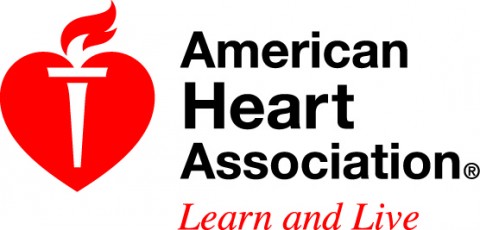American Heart Association
 Washington, D.C. – American Heart Association CEO Nancy Brown issued the following statement on the final farm bill language released by House and Senate negotiators:
Washington, D.C. – American Heart Association CEO Nancy Brown issued the following statement on the final farm bill language released by House and Senate negotiators:
“We commend congressional leaders for negotiating a bipartisan farm bill that prioritizes the needs of low-income people to provide a reliable source of food for their families.

“This bill will ensure more than 45 million eligible people and their families who are struggling through underemployment and low or stagnant wages continue to receive Supplemental Nutrition Assistance Program (SNAP) benefits.
“The compromise legislation rejects draconian provisions in the House-passed bill that the Congressional Budget Office estimates would have caused 1 million people to lose their SNAP benefits entirely, and another 5 million to 7 million people to see their benefits cut.
“The bill will expand the Food Insecurity Nutrition Incentive (FINI) program by providing mandatory funding and creating an education and technical assistance center that will help increase fruit and vegetable purchases and improve the nutrition of low-income families across the country.
“In addition, the bill will protect funding for SNAP nutrition education programs that empower SNAP participants with information about food budgeting and guidance on selecting healthier food.
“We are disappointed a pilot proposal from the American Heart Association designed to improve healthy choices in SNAP was not included. We would like to have seen more innovative ways to improve diet quality in the bill, but we are pleased the bill takes several small but important first steps in the right direction.
“This bill is far from perfect, but it represents a significant step forward in ensuring that vulnerable families can put food on the table and access more fruits and vegetables. It prioritizes programs that are critical to preventing cardiovascular disease, which will cost our nation $1.1 trillion annually in medical care and lost productivity by 2035.
“We commend Sen. Pat Roberts (R-KS), Sen. Debbie Stabenow (D-MI), Rep. Michael Conaway (R-TX) and Rep. Collin Peterson (D-MN) for their leadership in producing a final bill that will help prevent hunger and malnutrition nationwide, and we urge Congress to pass it.”
The American Heart Association had several priorities in the farm bill in addition to SNAP, FINI and SNAP-Ed.
They include:
- Fruit & Vegetable Rx Pilot Program – The compromise bill includes a fruit and vegetable prescription pilot to examine the effectiveness of produce prescriptions that healthcare providers write for fresh fruits and vegetables, often while working with community partners to ensure access. Fruit and vegetable prescriptions tend to target the most vulnerable to order to increase the number of adult Americans who meet fruit intake recommendations (12.2 percent as of 2015) and vegetable intake recommendations (9.3 percent as of 2015).
- Thrifty Food Plan (TFP) – The compromise bill calls for the TFP to be updated every five years and for purchase data to be collected from retail stores. The TFP is the basis for SNAP benefit levels and currently relies on data a decade or more old. Regular TFP updates will align this program with the Dietary Guidelines for Americans and ensure that it reflects current economic conditions.
- Association Health Plans – The compromise bill wisely omits language that would have established a loan program and grant program to assist in the establishment of agriculture association health plans (AHPs). Given the history of fraud and insolvency with AHPs, using federal funds to establish AHPs would put consumers and providers at risk of unpaid bills and taxpayers at risk of defaulted loans. In addition, establishing loan program at the USDA, which lacks expertise and experience in overseeing health plans, would have been a risky and ill-advised use of federal funds.
- Fresh Fruit & Vegetable Program (FFVP) – The compromise bill maintains the integrity of the Fresh Fruit and Vegetable Program (FFVP) as fresh only. FFVP targets the poorest children to get a fruit or vegetable snack in the classroom. This popular and successful program increases consumption of all forms of fruits and vegetables by 15 percent and does not increase over all caloric intake. It exposes kids to fruits and vegetables in their fresh whole form while often coupled with nutrition education, and it has been shown to lower obesity rates among some participants.
- SNAP Electronic Benefits Transfer (EBT) systems – While some of the EBT improvement provisions were excluded in the final legislation, such as a Government Accountability Office study more closely examine EBT outages, important language around portability of EBT at farmers markets was included in the final bill. Expanding and allowing greater flexibility for EBT use at farmers markets will help both retailers and participants alike.
About the American Heart Association
The American Heart Association is a leading force for a world of longer, healthier lives. With nearly a century of lifesaving work, the Dallas-based association is dedicated to ensuring equitable health for all. We are a trustworthy source empowering people to improve their heart health, brain health and well-being. We collaborate with numerous organizations and millions of volunteers to fund innovative research, advocate for stronger public health policies, and share lifesaving resources and information.
Connect with us on heart.org, Facebook, Twitter or by calling 1.800.AHA.USA1.



